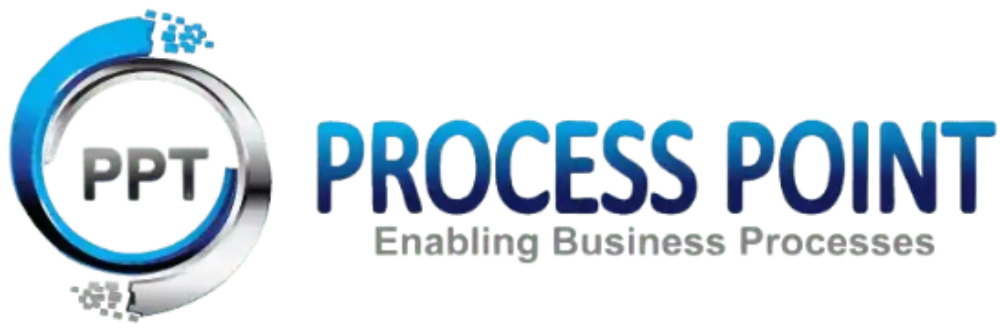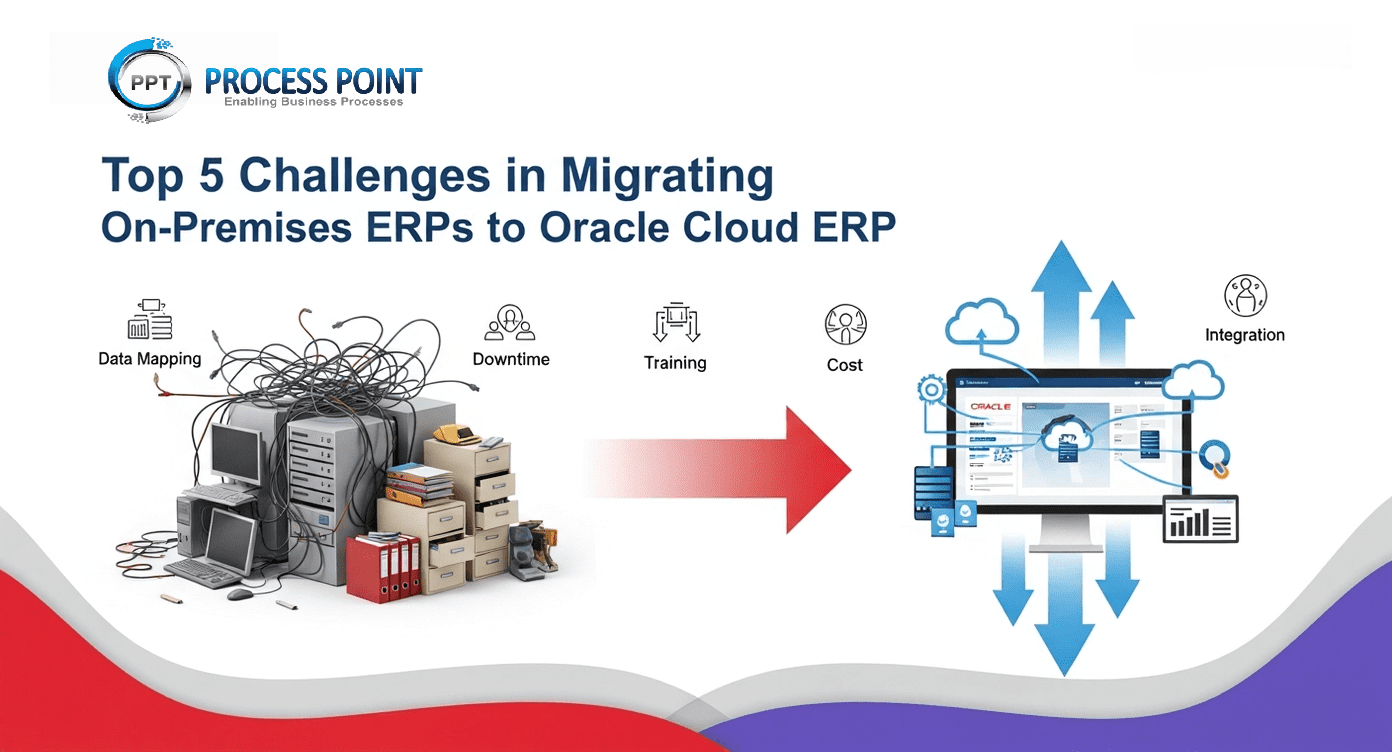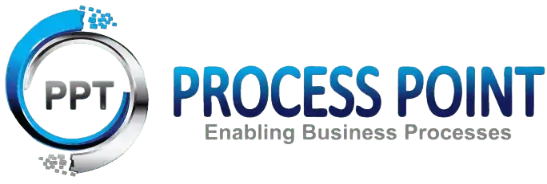ERP Consulting with Process Point Technologies: Your Path to Operational Excellence
- Published on : June 6, 2025
Introduction
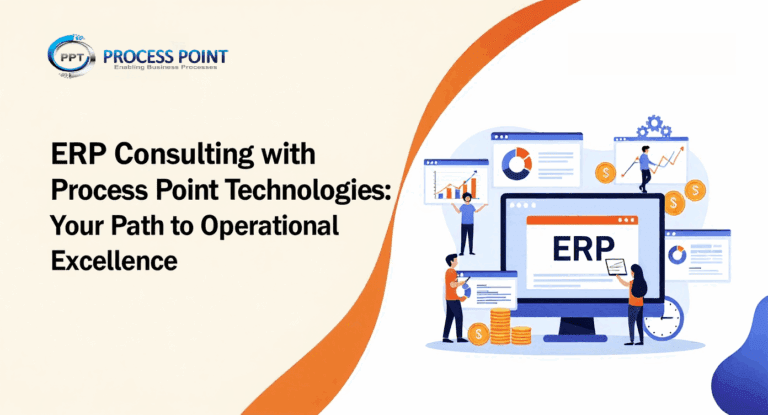
What is ERP Consulting?
Enterprise Resource Planning (ERP) consulting involves expert guidance to help organizations select, implement, and optimize ERP systems that align with their business processes and objectives. ERP consultants assess organizational needs, recommend suitable software solutions, and facilitate the integration of ERP systems into existing workflows.
The Role of ERP Consultants
ERP consultants play a pivotal role in:
- Conducting thorough business analysis
- Recommending appropriate ERP solutions
- Overseeing system implementation
- Ensuring seamless data migration
- Providing user training and support
- Offering post-implementation maintenance
Their expertise ensures that ERP systems are effectively tailored to enhance efficiency, streamline operations, and drive overall business growth.
The Importance of ERP in Business Operations
In today’s dynamic business environment, organizations face numerous challenges, including increasing competition, rapidly changing market conditions, and the need for greater operational efficiency. ERP systems address these challenges by integrating various business functions into a unified platform, fostering real-time data visibility, improved communication, and enhanced collaboration across departments.
Key Benefits of ERP Systems:
- Streamlined Processes: Automation and standardization of business processes reduce manual efforts and minimize errors.
- Data Centralization: A single database provides a unified view of business data, facilitating accurate reporting and analysis.
- Enhanced Visibility: Real-time insights into various business functions empower management to make proactive decisions.
- Cost Reduction: Optimized processes lead to significant cost savings over time.
- Scalability: ERP systems can be scaled and customized to accommodate business growth and evolving needs.
- Regulatory Compliance: Automation of compliance processes ensures adherence to industry regulations and standards.
Understanding ERP Systems
What is an ERP System?
An ERP system is a comprehensive software solution designed to manage and integrate the core business processes of an organization. It serves as a centralized platform that consolidates various functions, including finance, human resources, supply chain management, sales, inventory, and customer relationship management, into a unified system.
Key Features of ERP Software:
- Centralized Database: Ensures consistency and accuracy across departments.
- Modular Architecture: Allows organizations to implement specific modules based on their needs.
- Real-Time Reporting and Analytics: Provides insights for data-driven decision-making.
- Automation of Business Processes: Reduces manual efforts and minimizes the risk of human error.
- Integration with Other Systems: Enhances data flow and ensures a cohesive operational environment.
- User-Friendly Interface: Simplifies navigation and enhances user experience.
- Mobile Access: Supports remote work and facilitates decision-making on the go.
- Customizable Workflows: Tailors the system to meet specific business requirements.
- Scalability and Flexibility: Accommodates new processes and functionalities as businesses grow.
ERP Consulting Services Offered by Process Point Technologies
Our Expertise:
With over 13 years of experience, Process Point Technologies specializes in ERP consulting services across leading platforms:
- Oracle ERP
- Microsoft Dynamics
- SAP
We have successfully delivered global ERP implementations across 40+ countries, driving efficiency and cost savings.
Our Services Include:
- ERP Assessment & Selection: Evaluating business needs and selecting the appropriate ERP solution.
- Implementation & Integration: Deploying and integrating ERP systems into existing business processes.
- Data Migration: Ensuring seamless transfer of data from legacy systems to the new ERP platform.
- User Training: Providing comprehensive training to ensure effective use of the ERP system.
- Post-Implementation Support: Offering ongoing support and maintenance to optimize ERP performance.
Benefits of ERP Consulting with Process Point Technologies
- Accelerated Implementation: Our methodologies and accelerators streamline ERP implementation, ensuring efficiency and a seamless transition.
- Expert Guidance: With a team of certified specialists in Oracle ERP, SAP, and Microsoft Dynamics 365, we bring deep industry knowledge and hands-on experience.
- Customized Solutions: We tailor ERP solutions to meet the unique needs of your organization, ensuring alignment with your business objectives.
- Comprehensive Support: From strategy consulting to post-implementation maintenance, we provide end-to-end ERP services.
How Long Does ERP Implementation Take?
The timeline for ERP implementation can vary based on several factors, including the complexity of the ERP system, the size of the organization, and the specific requirements of the business.
Average Duration:
- Small to Medium Enterprises: 3 to 6 months
- Large Enterprises: 6 to 12 months or more
Factors Affecting Implementation Duration:
- Scope of the Project: The number of modules being implemented and the overall complexity of the system.
- Customization Needs: The level of customization required to meet specific business processes.
- Data Migration: The complexity of transferring data from legacy systems.
- Change Management: The need for training and managing user adoption.
- Resource Availability: The availability of internal resources to support the implementation process.
Choosing the Right ERP Consulting Partner
Selecting the right ERP consulting partner is crucial for a successful ERP implementation. Consider the following when evaluating potential partners:
- Experience and Expertise: Assess their experience with ERP systems and their understanding of your industry.
- Methodology: Understand their approach to ERP implementation and whether it aligns with your organization’s needs.
- References: Request case studies or references from previous clients to gauge their capabilities.
- Support Services: Inquire about the level of support and training provided during and after implementation.
Cost Considerations for ERP Consulting
Factors Influencing Consulting Fees:
- Complexity of the ERP Implementation: More complex projects may incur higher fees.
- Consultant Expertise: Highly experienced consultants may command higher fees.
- Project Duration: Longer projects will naturally incur higher costs.
- Geographic Location: Firms based in major metropolitan areas may charge higher fees.
- Level of Support Required: Ongoing support and training may add to the overall cost.
Budgeting for ERP Consulting Services:
Consider the following components when budgeting for ERP consulting services:
- Consulting Fees: Estimate the total consulting fees based on your project’s complexity and duration.
- Software Licensing Costs: Factor in the cost of acquiring ERP software licenses.
- Training Expenses: Include training costs for your staff to ensure effective use of the new system.
- Change Management Costs: Allocate funds for change management initiatives to facilitate a smooth transition.
- Contingency Fund: Set aside a contingency fund to cover any unexpected costs.
Why Partner with Process Point Technologies for ERP Consulting
In today’s fast-evolving business environment, selecting the right ERP consulting partner is critical to unlocking the true power of your ERP investment. At Process Point Technologies, we are dedicated to guiding your organization through every stage of the ERP journey — from understanding your unique business needs and defining a clear strategy, to seamless implementation and ongoing support.
Our approach goes beyond technology. We focus on aligning your ERP solution with your business goals to drive operational excellence, enhance process efficiency, and empower your teams with actionable insights through advanced reporting and analytics. By tailoring each solution to fit your organization’s specific environment, we help you adapt quickly to market changes and position your business for sustainable growth.
Choosing Process Point Technologies means gaining a trusted advisor who is committed to transforming your operations and maximizing your ERP’s impact. We partner with you to simplify complexity, optimize workflows, and deliver lasting value — ensuring your business is agile, innovative, and ready for the digital future.
Related Blogs
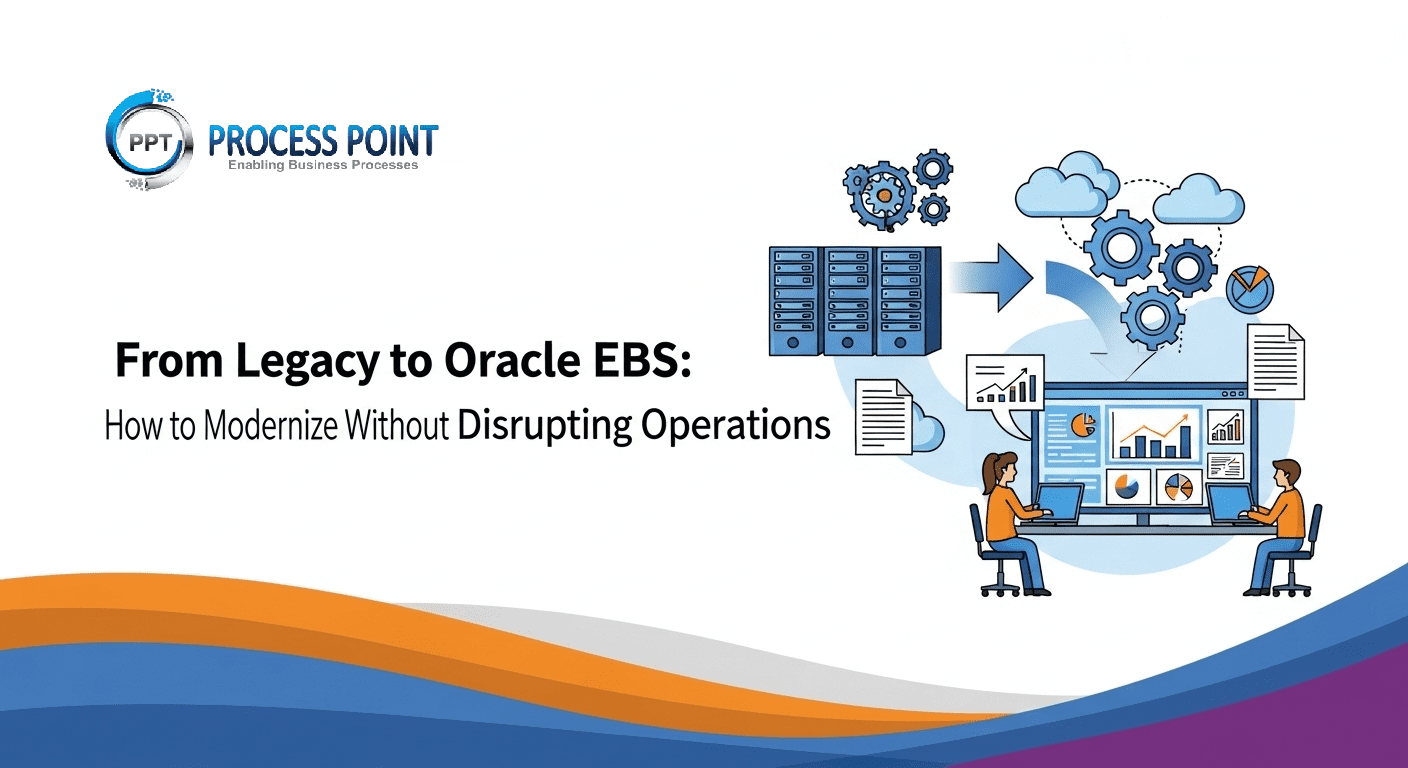
June 2 , 2025
From Legacy to Oracle EBS: How to Modernize Without Disrupting Operations
Upgrade from legacy systems to Oracle EBS for better efficiency, visibility, and agility. Explore phases, challenges, and best practices.
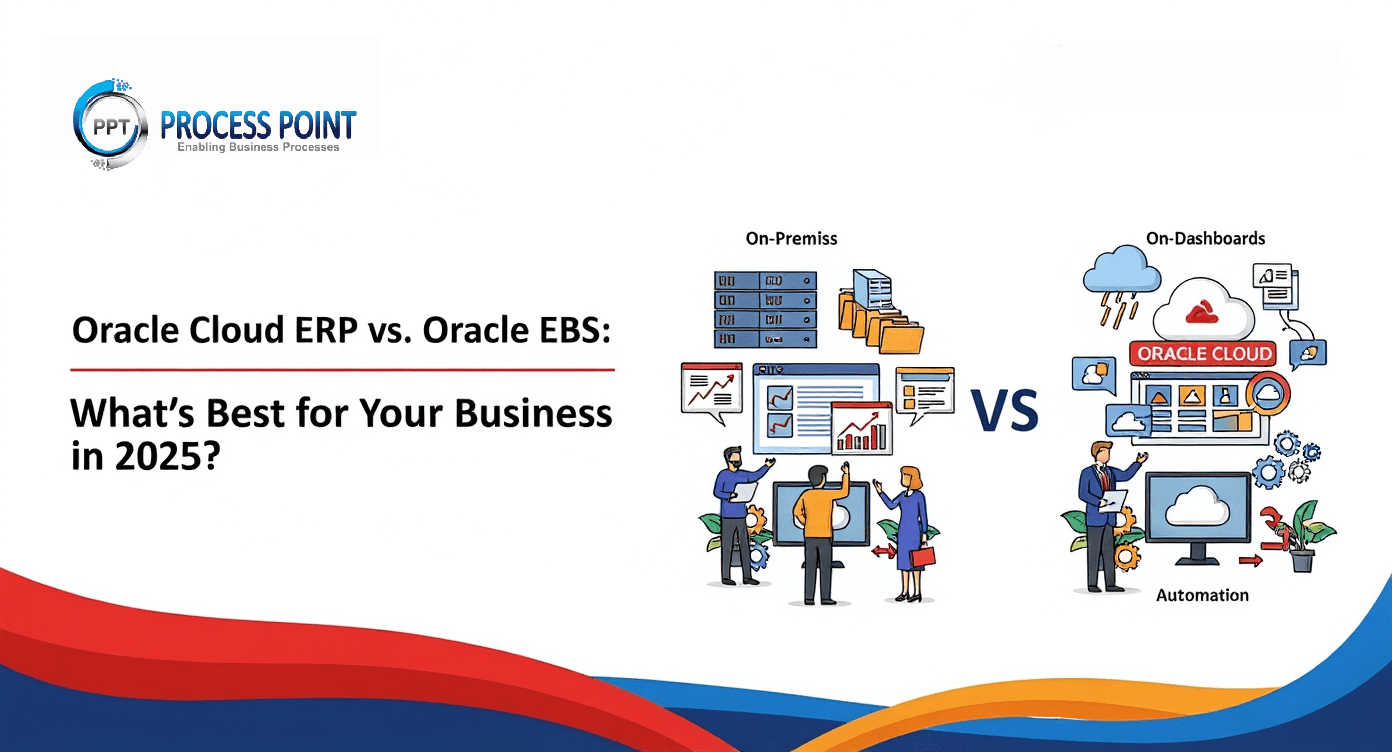
June 9, 2025
Oracle Cloud ERP vs. Oracle EBS: What’s Best for Your Business in 2025?
Compare Oracle Cloud ERP vs. E-Business Suite in 2025—explore differences in cost, scalability, security, and more for smart decisions.
